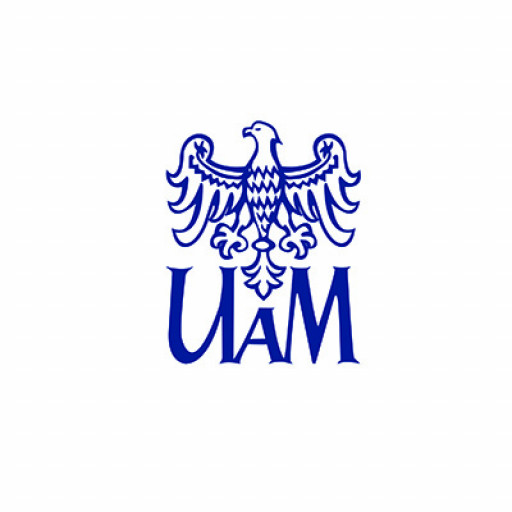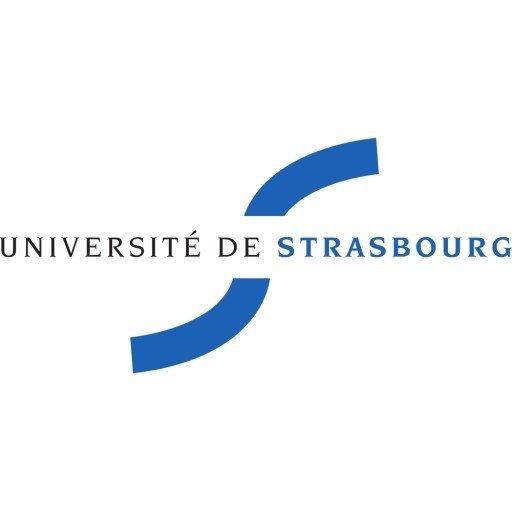Photos of university / #uniofnottingham
The BSc (Hons) Nanoscience programme at the University of Nottingham offers students an in-depth understanding of the fundamental principles and practical applications of nanoscience and nanotechnology. This innovative degree is designed to provide a strong foundation in physical sciences, chemistry, materials science, and engineering, preparing graduates for careers in research, development, and industry. Throughout the course, students explore the properties of materials at the nanoscale, learning how to manipulate and characterise nanomaterials, and gaining insight into their applications in electronics, medicine, energy, and environmental science. The programme emphasizes both theoretical knowledge and hands-on experience through laboratory work, research projects, and industry placements, fostering critical thinking, problem-solving skills, and scientific literacy. Students will engage with cutting-edge topics such as quantum mechanics, nanofabrication, surface science, and instrumentation techniques, all taught by leading experts in the field. The curriculum is designed to be flexible, allowing students to specialise in areas of interest or gain a broad overview of nanoscience as a whole. The university’s state-of-the-art facilities, including advanced microscopy and characterization labs, support a practical learning environment. Graduates of this programme will be well-equipped to pursue careers in academia, research institutes, or industries such as pharmaceuticals, electronics, energy, or environmental management. Many students also choose to continue their studies through MSc or PhD programmes, contributing to innovation and technological advancements in nanoscience. The degree’s integration of scientific fundamentals with real-world applications ensures graduates are highly employable and ready to meet the challenges of a rapidly evolving technological landscape.
The BSc Nanoscience degree program at the University of Nottingham offers an in-depth exploration of the fascinating world of nanotechnology and nanoscience. This undergraduate course is designed to equip students with comprehensive knowledge of the fundamental principles that underpin the behavior and manipulation of matter at the nanoscale. Throughout the program, students will investigate the unique physical, chemical, and biological properties that emerge when materials are reduced to nanometer dimensions, enabling innovative applications across various industries such as electronics, medicine, energy, and materials engineering.
The curriculum combines rigorous theoretical coursework with practical laboratory sessions, fostering hands-on skills and experimental techniques essential for working at the nanoscale. Students will study core subjects including quantum mechanics, material science, surface chemistry, and condensed matter physics, which provide the foundational understanding necessary for nanoscience research and development. The program emphasizes interdisciplinary learning, encouraging students to integrate concepts from physics, chemistry, biology, and engineering.
Students will also benefit from modules focused on nanofabrication, characterization methods, and nano-electronics, ensuring they gain expertise in utilizing advanced instrumentation such as electron microscopes, atomic force microscopes, and spectroscopic techniques. The practical component includes laboratory work, research projects, and collaborations with industry partners, offering real-world insight into technological developments and commercial applications.
In addition to technical skills, the course emphasizes innovation, problem-solving, and critical thinking, preparing graduates for careers in research, development, and industrial sectors involved in nanotechnology. The program may also include opportunities for placements, supporting students in gaining valuable industry experience.
Graduates of the BSc Nanoscience program will be well-positioned to pursue postgraduate study or embark on a career in areas such as nanomaterials, biotechnology, or electronics. With a combination of cutting-edge knowledge, practical skills, and a strong scientific foundation, students will be equipped to contribute to advancements in this rapidly growing field that promises to revolutionize many aspects of modern technology and society.
Prerequisites for admission to the Nanoscience undergraduate program typically include A-levels or equivalent qualifications with specific subject requirements, such as Chemistry, Physics, or Mathematics. Prospective students are expected to demonstrate a strong background in the sciences, with particular emphasis on skills relevant to nanotechnology and materials science. For applicants whose first language is not English, proficiency in English must be proven through standardized tests like IELTS or TOEFL, with minimum scores set by the university's admissions policy. Additionally, applicants may need to submit personal statements, references, and, in some cases, sit for interviews or assessments to evaluate their motivation and suitability for the program. The program also encourages applicants with practical experience or interests in nanotechnology, materials science, chemistry, physics, or related fields, although these are not always mandatory. The University of Nottingham values diverse academic backgrounds and strives to admit students who demonstrate enthusiasm and aptitude for interdisciplinary scientific research. For international students, there are specific visa and documentation requirements, and applicants from outside the UK must ensure compliance with immigration policies. The university may also consider contextual admissions, offering opportunities for students from disadvantaged backgrounds or with non-traditional qualifications. Overall, the program aims for students to have a solid science foundation, good analytical skills, and a keen interest in nanoscience and its applications. Each application is reviewed individually, considering academic records, personal achievements, and potential contributions to the university community. Successful applicants will meet or exceed the minimum entry standards and show readiness to undertake a challenging interdisciplinary course that combines physics, chemistry, materials science, and engineering principles relevant to the nanoscale.
The University of Nottingham offers various financing options to support students pursuing their Nanoscience degree programs. Tuition fees for undergraduate and postgraduate students are set annually and vary depending on the level of study and domicile. For UK students, tuition fees are typically subsidized by government funding, making the cost more affordable, whereas international students are required to pay the full international tuition fees, which are higher. Students are encouraged to apply for scholarships, bursaries, and grants available through the university, which can significantly reduce the financial burden. The university also participates in national financial aid schemes such as the Student Loans Company, enabling eligible students to obtain loans to cover tuition fees and living expenses.
In addition, the university provides various work opportunities to students, including part-time jobs on and off campus, which can help offset costs. The university's career services assist students in finding suitable employment during their studies, fostering financial independence and work experience. For postgraduate students, there are funding options such as research council grants, university scholarships, and industry-sponsored studentships, many of which require an application process and may be competitive. International students are advised to explore funded scholarships specific to their country of origin or aimed at attracting global talent.
Students are also encouraged to plan their finances carefully before commencing their studies, taking into account accommodation costs, study materials, and daily expenses. The university offers guidance and workshops on budgeting and financial planning to help students manage their resources effectively. Overall, the University of Nottingham provides a comprehensive range of financing options and support services to ensure that students can access high-quality Nanoscience education without undue financial stress.
The BSc (Hons) NanoScience programme at the University of Nottingham offers a comprehensive education in the emerging field of nanotechnology and nanoscience. This course is designed to provide students with a solid foundation in the principles of nanoscale science, including the properties of materials, fabrication techniques, and applications across various industries such as electronics, medicine, energy, and environmental science. Throughout the programme, students engage with a wide range of subjects such as physics, chemistry, materials science, engineering, and computational modelling, all tailored to deepen their understanding of phenomena occurring at the nanoscale.
The course structure combines theoretical lectures, practical laboratory work, and project-based learning to cultivate both conceptual knowledge and hands-on skills. Students can expect to gain experience in advanced microscopy, characterization techniques, and the synthesis of nanomaterials. The programme emphasizes interdisciplinary approaches, encouraging students to collaborate across scientific fields to solve complex real-world problems involving nanotechnologies.
The university also offers opportunities for industrial placements, internships, and collaborative projects with industry partners, which enhance employability and provide valuable insights into commercial applications. The programme prepares graduates for careers in research and development, academia, and industry, or for further study at postgraduate level. The campus facilities include top-tier laboratories equipped with state-of-the-art technology, ensuring students have access to the necessary tools for their research and projects.
The University of Nottingham is known for its strong research environment and innovative teaching methods, which contribute to a stimulating learning experience. The department actively participates in cutting-edge research in nanoscience, with opportunities for students to engage in research projects, enabling them to contribute to exciting advancements in the field. The curriculum is regularly updated to incorporate the latest scientific developments and industry trends, ensuring graduates are well-prepared for future challenges.
Students in the programme are encouraged to develop key skills such as problem-solving, analytical thinking, communication, and teamwork, which are highly valued by employers across technical and non-technical sectors. Overall, the BSc (Hons) NanoScience at Nottingham aims to produce versatile graduates equipped with the knowledge, skills, and experience necessary to thrive in the dynamic and rapidly evolving field of nanotechnology.










